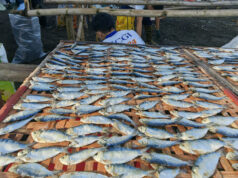Trade protections under the Customs Modernization and Tariff Act
With news of possible escalation of trade hostilities between the US and China, it would be good to look at possible trade processes and remedies that can be resorted to by the Philippines in case the conflict creeps into our economy.
The Customs Modernization and Tariff Act (CMTA or RA 10863), enacted in 2016, not only sought to upgrade customs rules and procedures and smooth out kinks in the supply chain but also included measures to protect the Philippines or Philippine industries in case of trade discrimination or harmful imports.
There are the trade remedies, which Secs. 711, 712, and 713 provide for by referring to RA Nos. 8752, 8800, and 8751 (or for anti-dumping, safeguards, and countervailing, respectively).
Then there is Section 714, which authorizes, without prejudice to any Philippine commitment in any ratified international agreements or treaty, the President in case of discrimination by foreign countries to (if the public interest will be served thereby) specify and declare new or additional duties in an amount not exceeding one hundred percent (100%) ad valorem upon goods wholly or in part the growth or product of, or imported in a vessel of, any such foreign countries.
Thus, if the President finds that another country imposes, directly or indirectly, upon the disposition or transportation in transit or through reexportation from such country of any goods wholly or in part the growth or product of the Philippines, any unreasonable charge, exaction, regulation or limitation which is not equally enforced upon the like goods of every foreign country; or discriminates in fact against the commerce of the Philippines, directly or indirectly, by law or administrative regulation or practice, by or in respect to any customs, tonnage, or port duty, fee, charge, exaction, classification, regulation, condition, restriction or prohibition, in such manner as to place the commerce of the Philippines at a disadvantage compared with the commerce of any foreign country.
If at any time the President shall find it to be a fact that such foreign country or countries has not only discriminated against the commerce of the Philippines but, after the issuance of a proclamation protecting the Philippines, maintained or increased its said discrimination against the commerce of the Philippines, the President is hereby authorized, if deemed consistent with the interests of the Philippines and of public interest, to issue a further proclamation directing that such product of said country or countries or such goods imported in their vessels be excluded from importation into the Philippines.

The Tariff Commission has the duty to ascertain and at all times be informed whether discriminations are being done against the commerce of the Philippines, and if and when such discriminatory acts are disclosed, it shall be the duty of the TC to bring the matter to the attention of the President, and to recommend measures to address such discriminatory acts.
Aside from trade remedies, should foreign imports be coming in harmful volumes, there is also the “flexible clause” (e.g, Section 1608) which provides that in the interest of the general welfare and national security, and, subject to the limitations prescribed under the CMTA, the President, upon the recommendation of the NEDA, is hereby empowered to: increase, reduce, or remove existing rates of import duty including any necessary change in classification. The existing rates may be increased or decreased to any level, in one or several stages, but in no case shall the increased rate of import duty be higher than a maximum of one hundred percent (100%) ad valorem.
Under Sec. 1608, the President can also establish import quotas or ban imports of any commodity, as may be necessary; and impose an additional duty on all imports not exceeding ten percent (10%) ad valorem whenever necessary.
Notably, the powers stated under the flexibility clause are delegated to the President and exercisable only when Congress is not in session. As such, the said powers may be withdrawn or terminated by Congress through a joint resolution.
Finally, Section 1609 (Promotion of Foreign Trade) provides that, for the purpose of expanding foreign markets for Philippine products as a means of assisting in the economic development of the country, in overcoming domestic unemployment, in increasing the purchasing power of the Philippine peso, and in establishing and maintaining better relations between the Philippines and other countries, the President can enter into trade agreements with foreign governments or instrumentalities thereof; and modify import duties, including any necessary change in classification and other import restrictions as are needed to carry out or promote foreign trade.
It’s quite important to note that before any trade agreement is concluded with any foreign government or instrumentality thereof, reasonable public notice of the intention to negotiate an agreement with such government or instrumentality shall be given in order that interested persons may have an opportunity to present their views to the TC. The latter shall seek information and advice from other relevant government agencies.
Jemy Gatdula is a Senior Fellow of the Philippine Council for Foreign Relations and a Philippine Judicial Academy law lecturer for constitutional philosophy and jurisprudence.
Twitter: @jemygatdula



